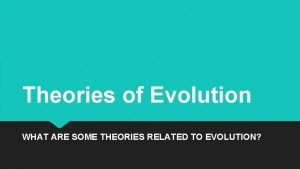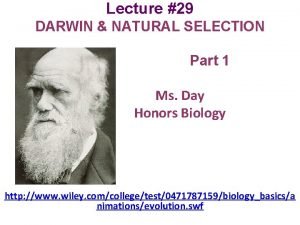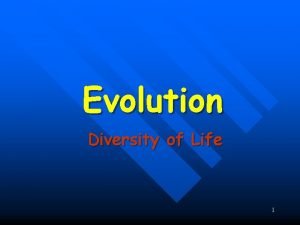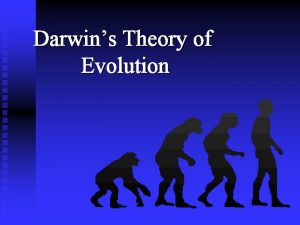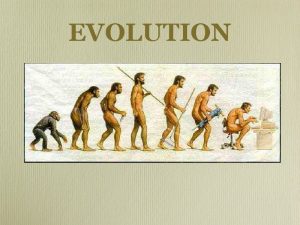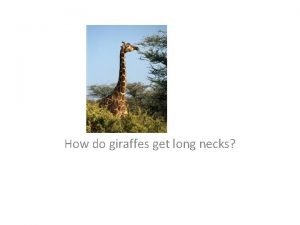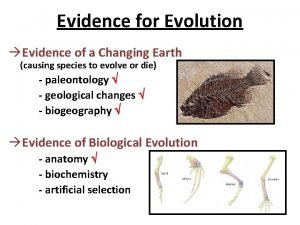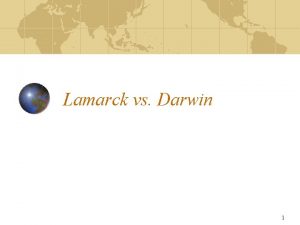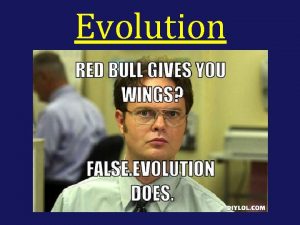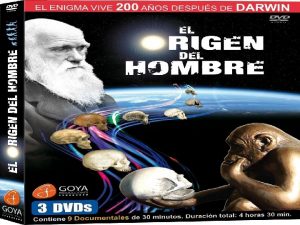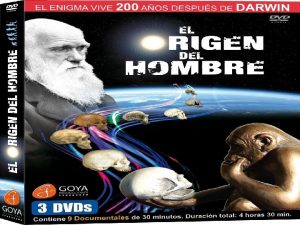Theory of Evolution Darwin vs Lamarck Texas Horned







- Slides: 7

Theory of Evolution: Darwin vs. Lamarck

Texas Horned Lizard Defense Behavior Adaptations -Its horns are extensions of its cranium and contain true bone. -When threatened it will puff up its body to cause its spiny scales to protrude, which makes it hard to swallow. -Has the ability to squirt an aimed stream of blood from the corners of it’s eyes and sometimes mouth for a distance up to 5 feet.

Objective • Students will be able to identify three scenarios of Darwin and Lamarck’s theory of evolution on a worksheet provided in class. Venn Diagram Same Different

Who is Darwin and Lamarck? • • Charles Darwin Feb. 1809 -April 1882 English Naturalist. Published his theory of evolution in his book On the Origin of Species. Remembered for his theory of evolution called natural selection. Jean-Baptiste Lamarck • Aug. 1744 -Dec. 1829 • French Naturalist. • Provided the first truly cohesive theory of evolution. • Remembered for his use/disuse theory of evolution.

Darwin’s Theory of Evolution • Organisms that have variation will adapt to their environment and have more offspring. • Offspring are born with their parents’ favorable traits and as they reproduce those traits become more dominant. • Inheritance • Variation

Lamarck’s Theory of Evolution • Changes in an organism are influenced by what the organism wants or needs and then over many generations the offspring are born with these changes. • Individual structures (body parts) of an organism decreases in size by disuse and increases in size when used. • Wants and Needs • Use and Disuse

Darwin and Lamarck agreed that… • Organisms change to work better in their environment. • Organisms have evolved (changed) over time and are still evolving.
